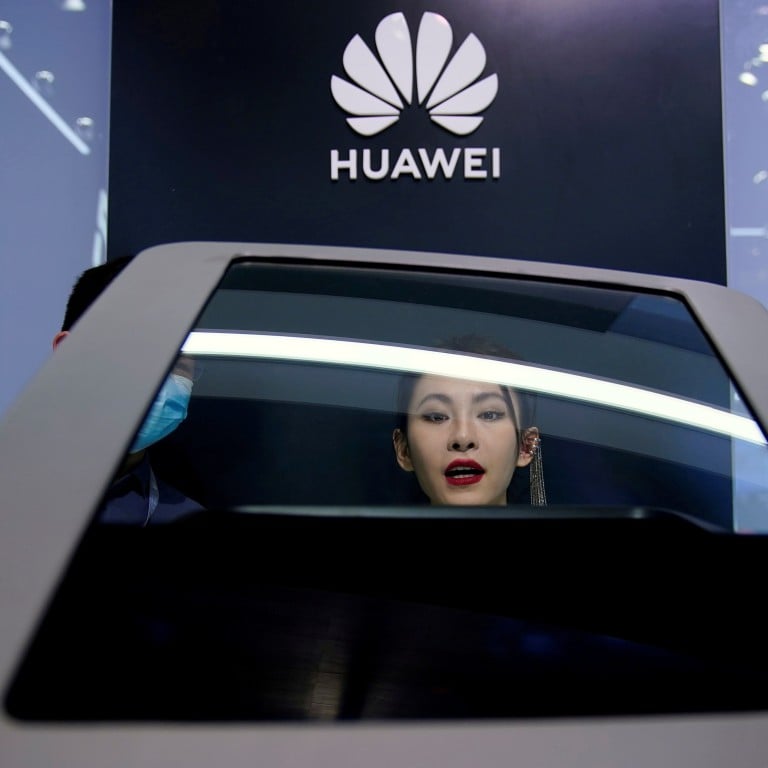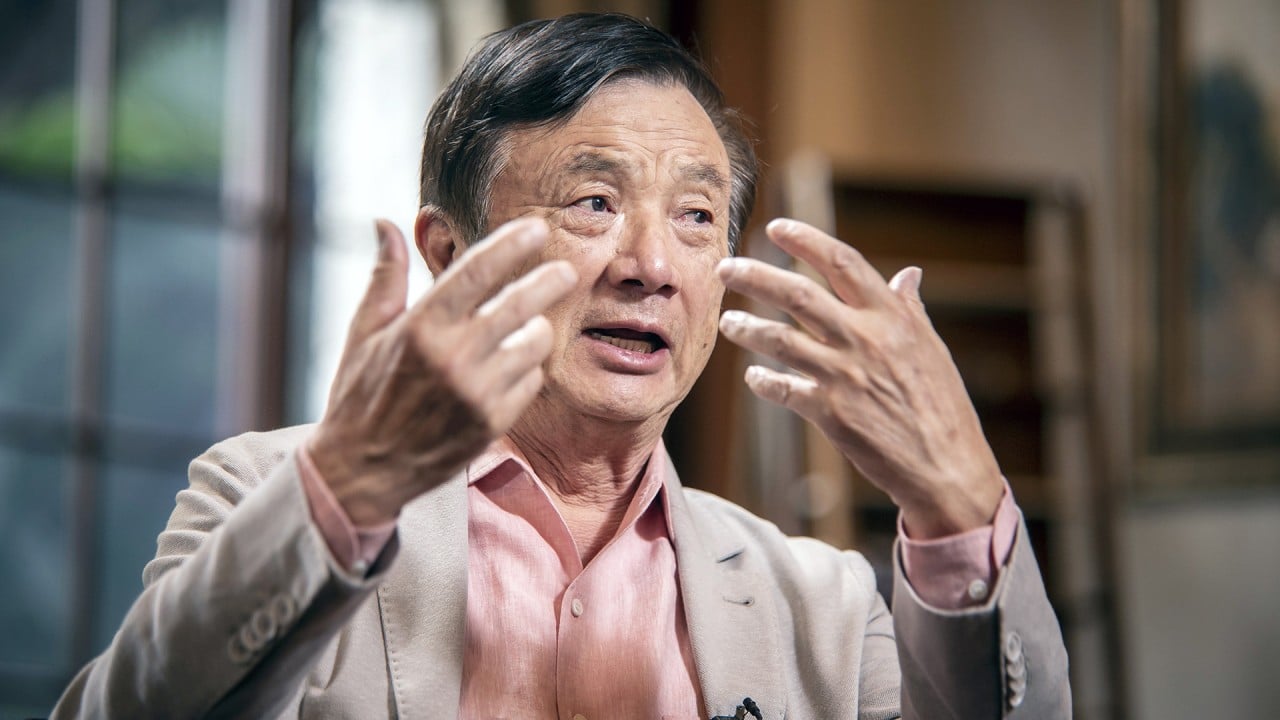
US Commerce Department denies easing trade restrictions on Huawei Technologies
- ‘The policy has not been eased or amended,’ a department spokesman says
- An outcry followed reports that Huawei has won approval to purchase American-made automotive chips
The US Commerce Department has denied any loosening of its trade restrictions on Huawei Technologies – but did not refute reports that the Chinese tech giant has won approval to procure American semiconductors for its automotive parts business.
“The policy has not been eased or amended,” a department spokesperson said on Friday.
The department was responding to the outcry that followed the recent news that it had approved an exemption to Huawei, which has been on the department’s “entity list” and prohibited from doing business with American suppliers, to buy auto chips.
US gives Huawei approval for auto chips licences
The department said that Huawei remained on the entity list and continued to be subject to Commerce’s licensing policy.
Shortly after the news broke on Wednesday about the approval, Mike Pompeo, the former secretary of state during the Trump administration, tweeted that “I worked to secure America from the Chinese Communist Party threat, esp. Huawei’s predatory espionage.
“This admin has given in to them. The Russians get a pipeline. Iran gets billions. The CCP gets semiconductors.”
On Thursday, Senator Marco Rubio, Republican of Florida, sought answers from the Biden administration about its action.
“The Biden administration cannot be allowed to hide this approval from the public,” Rubio said in a statement. “Officials need to come forward with what actions they took and why.
“It is not in America’s economic or security interests to help Huawei. Instead of granting waivers, the Biden administration should be increasing penalties and restrictions on Huawei and other Chinese tech companies.”
Paul Triolo, director of tech policy practice at the political risk consultancy Eurasia Group, called these reactions “a political game”.
US Republicans want former Huawei unit Honor Device Co added to economic blacklist
“Anything that looks like it is being easy on Huawei is seen as a fair political point to pose with the administration,” Triolo said.
“But they are not reflective of a changing of the policy.”
In Friday’s statement, the Commerce Department said that license applications submitted to it are reviewed by the Departments of Defence, Energy and State.
“The Biden administration has not changed the regulatory restrictions on Huawei and its affiliates on the entity list imposed in 2019 and 2020 or the policy for implementing those restrictions developed during the Trump administration,” it said.

03:19
Huawei’s Ren Zhengfei says he drew on the best of US politics and business to found telecoms giant
A representative for Huawei declined to comment.
The approval would allow Huawei to buy silicon chips worth hundreds of millions of dollars for its growing automotive component business, Reuters reported on Wednesday.
“It’s not a sign that the Biden administration is softer on Huawei,” said James Lewis, director of the Technology and Public Policy Programme at the Centre for Strategic and International Studies in Washington. “They are trying to be a little more rational about risk.
“There is little risk from selling car chips. But it doesn’t mean they are going to loosen up on 5G,” Lewis said.
In an effort to further reduce Huawei’s presence in the US, Congress passed US$1.9 billion to reimburse American rural telecoms carriers for the cost of removing equipment made by Huawei and ZTE, another Chinese telecoms firm. Huawei reported its largest revenue decline in the first half of this year.

